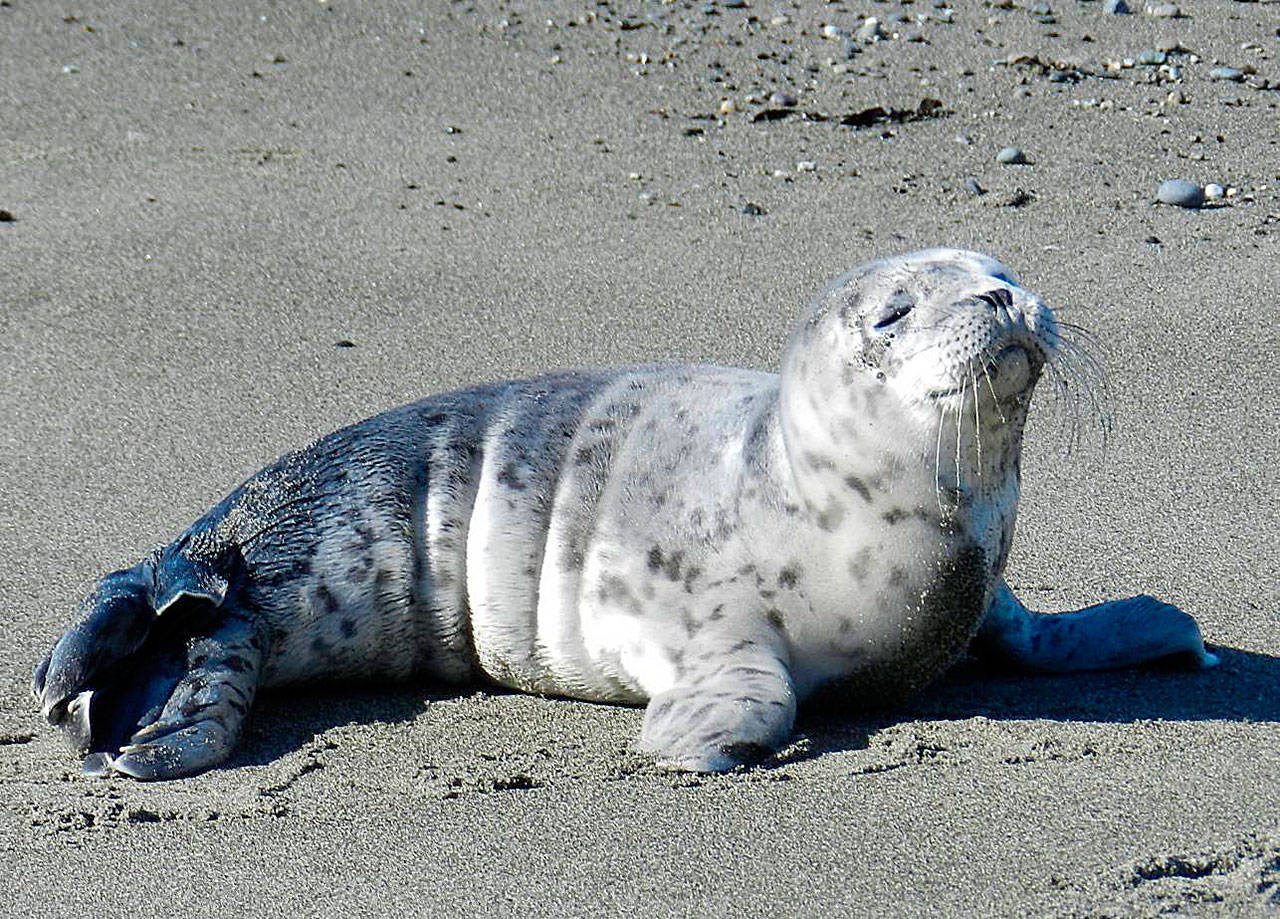Advocates for marine mammals are making their annual pitch to beach watchers regarding dewy-eyed babies they may come across.
Don’t touch the baby seals.
Seal pupping season has started in the Salish Sea and people should make sure to follow regulations regarding seals and seal pups on the beach, the Central Puget Sound Marine Mammal Stranding Network and NOAA Fisheries advise.
It’s normal for the pups to stay on a beach for days or weeks, much of that time alone. That does not mean they are abandoned; their mothers return to nurse them as long as people aren’t nearby.
“Many harbor seal pups are too young to have developed protective wariness (escape response) and may not flee when approached while resting and warming up on shore,” a Stranding Network press release states. “Harbor seals use log booms, docks and shoreline habitat on a daily basis to rest and regulate their body temperature.”
In the past, well-meaning folks have removed pups from beaches, thinking the adorable creatures had been left behind. Unfortunately, this drastically decreases their chance of survival.
Anecdotal reports indicate that pups have successfully reunited with their mothers up to 48 hours after separation. A female seal is more likely to return to reclaim her pup once the disturbance near the pup goes away. If activity continues near the pup, the female may eventually give up trying to return.
Seal pups are born in inland waters June through August and between 3,000 and 5,000 harbor seal pups are born during that time.
Nursing pups remain with their mothers for four to six weeks and are then weaned to forage and survive on their own. Pups that are being weaned must learn to survive and forage for food. Weaned pups will spend extended hours on shore resting and regulating their body temperature.
A seal pup’s best chance of survival happens when they are left alone. Still, up to 50 percent of those will not survive the first year, according to a press release.
Under the Marine Mammal Protection Act, harbor seal populations have recovered to healthy numbers and their population is at carrying capacity
• The Stranding Network urges people to stay back 100 yards, keep dogs on a leash, and, if the animal is injured, call 1-866-ORCANET (866-672-2638) for Island, Skagit, and Port Susan beaches.



